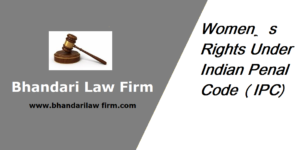Legal Services for Verification of the title of an Immovable Property in Chandigarh and Punjab
The land is a valuable asset and its value depends on the geographical area and location, with the density of the population living there. But if we go with demand and supply concept, its demands remain always higher even if there is less supply. Property can be in any nature either movable or immovable. It is having great relevance because of its immovable nature as it cannot be removed. Land ownership is broadly defined by access to a land title. In India, land ownership is primarily established through a registered sale deed (a record of the property transaction between the buyer and seller). There are multiple documents required to prove the ownership of the property. The sale deed is one of the most valuable legal documents that prove the actual ownership of property and identity of the absolute owner. A sale deed is drafted by legal draftsman on a non-judicial stamp paper of the requisite value as prescribed under the Stamp Act of the particular state concerned property title verification Chandigarh Punjab
As our current system of land records was inherited from the pre-independence days (zamindari system). A draftsman has to keep in the eye these below requirements while making a sale deed. But that system is not followed in a systematic manner, as a result, many property disputes arise. So The Transfer of Property Act, 1882 provides that the right, title, or interest of an immovable property (or land) can be transferred only by a registered instrument. The Registration Act, 1908, is the primary law that regulates the registration of land-related documents. Under the property Act, these are the requirements that are must to fulfill in the sale deed.
-
Name of the deed
It is up to the parties who have to decide which deed they want to be prepared e.g. DEED OF SALE, DEED OF MORTGAGE or DEED OF LEASE, etc. and based on that there will be the transfer of ownership of immovable property. property title verification Chandigarh Punjab
-
Parties to the sale deed
An absolute sale deed must contain the names, age, and addresses of respective parties to the transaction and both the parties i.e. seller and buyer must be competent to enter into a valid contract so that it will not affect the validity of sale deed. property title verification Chandigarh Punjab
-
Agreement and subject matter of sale
In the agreement for sale, both parties may mutually settle the terms and conditions of the agreement. A valid sale deed must contain a full description of the property including identification number, total plot area, construction details as well as exact location.
-
Passing of the title
In A sale deed, the duration is decided when will the original title to be passed to the purchaser.
Once the title of the immovable property is transferred, all the rights will pass to the purchaser.
-
Actual delivery of the possession
The delivery of possession of the immovable property will be absolutely transferred after the registration process is completed.
-
Mode of payment
A sale deed must include the clause stating the amount as agreed between the seller and the buyer which has to be paid by the buyer to the seller on the execution of the sale deed. The buyer can decide in which mode he wants to pay a considerable amount. property title verification Chandigarh Punjab
A sale deed must be registered in accordance with the Registration Act, 1908 property title verification Chandigarh Punjab
Once the Sale Deed is prepared all the parties to the Deed shall execute it by affixing their thumb impression or full signature. During the execution of the deed , Each page should be signed by both the parties in front of two witnesses other than the parties. The witnesses shall also be made their signatures. As per the Registration Act, 1908, when registering a property sale deed, the identity of the parties needs to be checked including the registration of last sale deed. While the identity of the buyer and the seller is verified through various identity proof documents. As registration of sale deed is a public record it can be investigated by the party purchasing it. The burden of checking the ownership of property lies in the buyer himself. The buyer has to verify the past ownership and title of the property for less further encumbrances. property title verification Chandigarh Punjab
Also Read:- Partition of Immovable Property Under Hindu Law
The documents registered will be made available to the buyer interesting in the purchase of property from the sub-registrar office and a copy of the document will be provided to them. As it is a public document it can be investigated by any person interested. The buyer should take responsibility for all the below-mentioned details
- The original documents have to be produced within four months from the date of registration of the deed.
- The seller has clear all payments related to the property such as property tax, cess, water, and electricity charges before the sale deed is signed. After that verification, the buyer will pay all the stamp charges.
In addition, the advocate of the concerned party will issue a notice in the public regarding any claim over that property relating any debt, mortgage, charge remaining. Such Public Notice supports the buyer’s contention in the case of a dispute that he is a bonafide purchaser for value without notice of any claim. The main purpose of verification is to ensure that the concerned property is registered in the name of the real owner selling it. Moreover, it’s the duty of selling parties to disclose all the defects relating to that property.
The buyer has to take certain precautions regarding the title verification of the property title verification Chandigarh Punjab
- Verification of title in name of the owner
- All electricity, telephone and maintenance bills and receipts are duly paid and free from any charges.
- Inspection of the records of the property for ascertaining whether: The land has been conveyed to that person.
- Ensure that the transferor is in possession of the flat and has the original agreement for sale
- Verify that proper stamp duty is paid on the original document for sale and the agreements are registered
After satisfaction relating to any doubts in that property, the property is ready to be transferred. After the successful registration of property after sale deed, the ownership is absolutely transferred in name of the buyer who is now the absolute owner having all the rights and benefits of possession. Now the title deed becomes a sale deed. Now it should be the responsibility of the buyer be that he will make a check over the absolute title and ownership of the property that is going to be sold to him. property title verification Chandigarh Punjab
In Chandigarh and Punjab to check the title verification of the property the investigator must do the following checks: –
- Recent 7/12 Extract
It gives an idea about the type of ownership, the total number of owners, and their share in the property. Any Loan on the property, tenant in the property, a cultivable and non-cultivable area in the property, assessment for the property, Class of the property, and any Reservation on property.
- Mutations
These are the entries made by the revenue department in respect of any change in ownership of the property, such changes maybe because of the death of any owner, Loan obtained by any owner, etc.
- Ceiling Limit
As per the type of the property, there is a limit provided for the holding of the Land, the purchaser must check that the Land which he is going to purchase will not cross his limit.
- The Khata Utara (Nakal Jamabandi) is a document that gives us an idea about the exact holding of the owner and if there is any loan, lien, or mortgage over the immovable property.
Author: This article was written by Akanksha, B.A. LLB (Hons.), Student of Guru Nanak Dev University, Amritsar, Punjab.
Note: For any further information or any query you may contact us on 9855677966 or via email info@bhandarilawfirm.com



